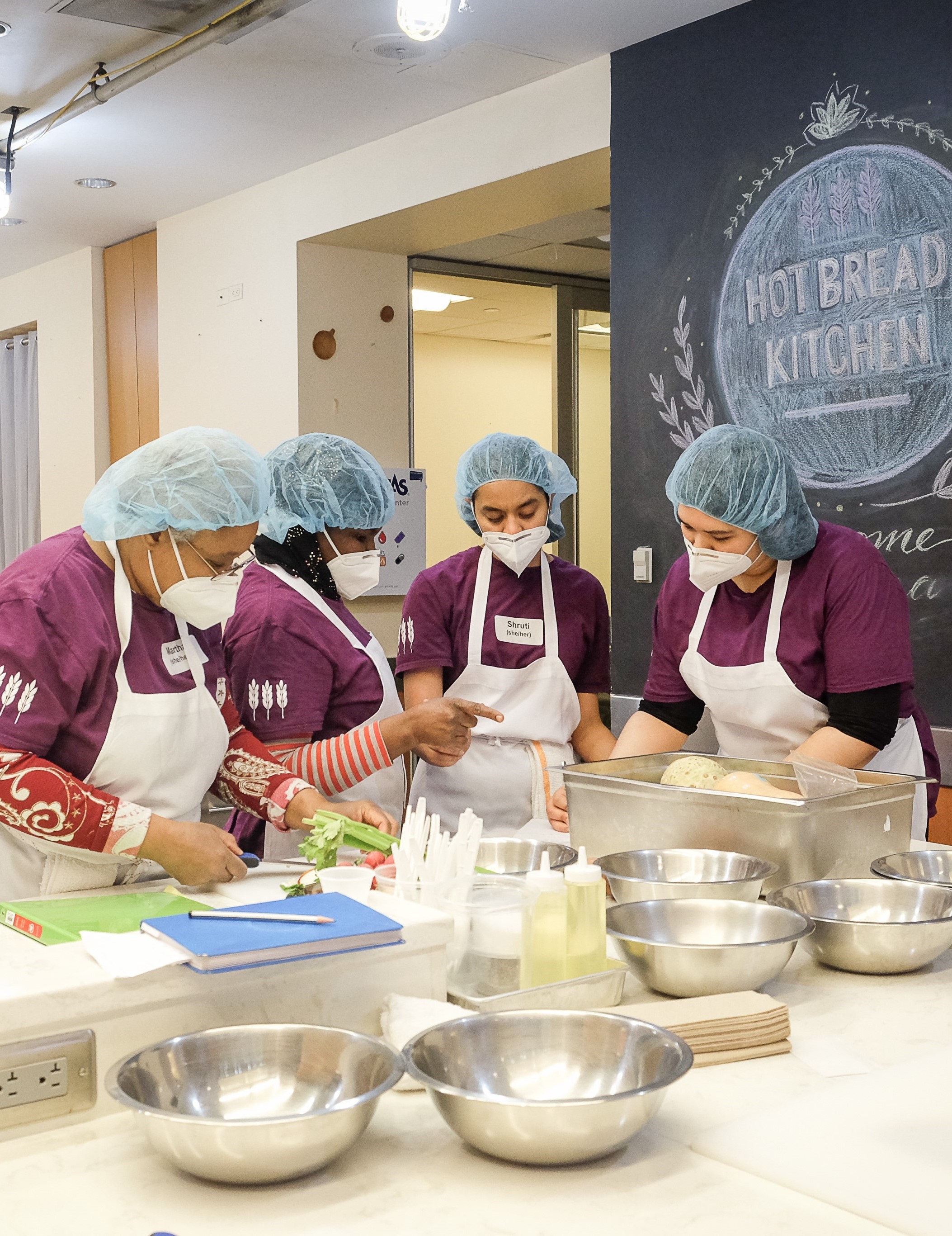Testimony of Dori Block
Senior Editor, Center for an Urban Future
Before the New York City Council Committees on Immigration and Small Business
on Preparing Asylum Seekers and Migrants for the Workforce
June 10, 2024
Good morning. I am Dorian Block, senior editor at the Center for an Urban Future, an independent think tank focused on creating a stronger and more inclusive economy in New York. Thank you to Chairs Avilés and Feliz and members of the committees for the opportunity.
Over the past two decades, the Center for an Urban Future has published many reports on the vital role that immigrants play in New York City’s economy—and what policymakers can do to help the newest New Yorkers thrive. Most recently, in September 2023, the Center for an Urban Future published a report entitled “Preparing Today’s Asylum Seekers to Become Tomorrow’s Workforce,” which found long waiting lists at most of the city programs offering English classes and workforce training tailored to immigrants.
Even before the recent influx of migrants, New York City was struggling to help many of the city’s 2.79 million working-age foreign-born residents —including over 1.4 million with limited English proficiency—with job training, workplace certifications, learning English, and connecting to other services that lead to employment.
Since then, the stream of arrivals has continued, and policymakers have taken some important steps to provide assistance that goes beyond humanitarian aid, including the creation of the City Council’s New Arrivals Strategy Team in April 2024.
But a lot more is needed to help build the capacity of the city’s immigrant-serving organizations and support more of the newest New Yorkers on the path to economic self-sufficiency.
One of the biggest takeaways from our research is the striking inadequacy of funding for English for speakers of other languages (ESOL). Our report finds that fewer than 4 percent of all adult New Yorkers who could benefit from literacy education are able to take ESOL classes each year. For instance, Queens Public Library alone has an ESOL waiting list of about 2,000 people.
The City Council should work with the Adams administration to restore and baseline funding for adult literacy programs in the FY 2025 budget and ensure that new RFPs support joint ESOL-job training programs run by CUNY, the city’s public libraries, and nonprofit training and literacy assistance organizations, which absorb the bulk of the demand.
In addition to the need for English classes, contracts and rules are limiting the reach and effectiveness of many workforce training programs. Most workforce training programs are unable to serve immigrants who do not yet have official work authorization due to restrictions on available funding. Likewise, contracts that require in-person instruction limit participation among parents without childcare, people who live far from training sites, and those juggling multiple part-time gigs. And a lack of funding for wraparound services from childcare to transportation prevents existing programs from being more inclusive and effective.
The city can step in by supporting job-specific ESOL and certification programs for migrants who do not yet have work authorization; ensuring that future city contracts and RFPs allow providers greater flexibility, including remote and hybrid options; and allowing city funding to integrate wraparound services into existing programs.
By building the capacity of immigrant-serving organizations to support pathways into employment, this City Council can ensure that the newest New Yorkers become as vital to the city’s economic future as the generations that came before them.



